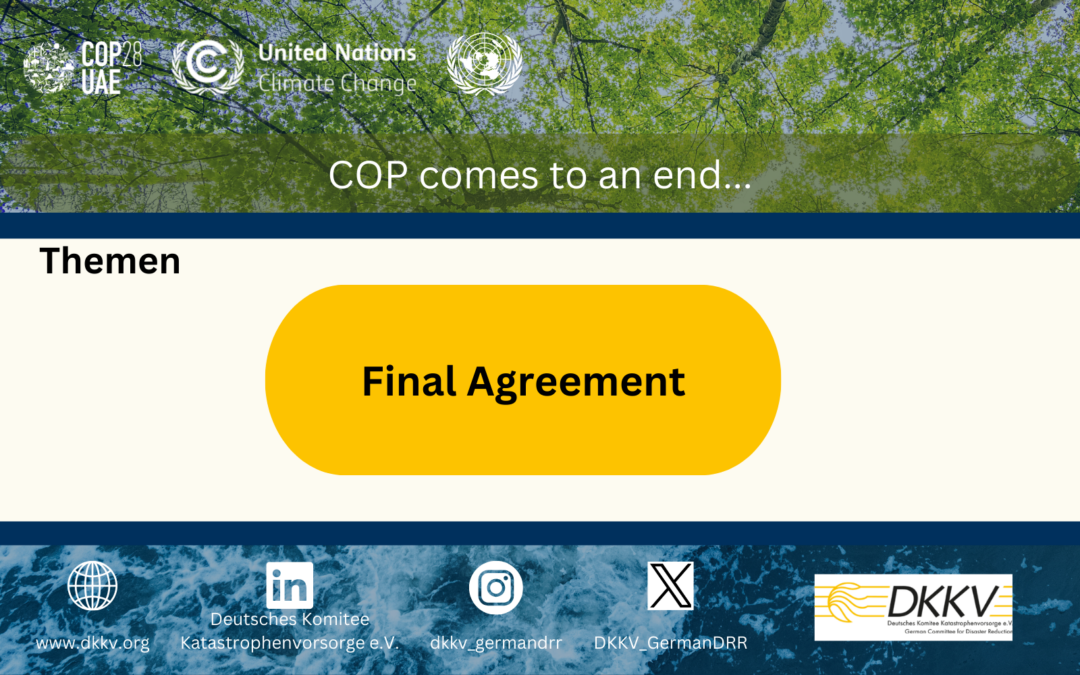After a narrow failure, the almost 200 participating countries agreed on a text with many compromises during 36 hours of negotiations in Dubai. The UN describes the COP28 agreement as “the Beginning of the End of the Fossil Fuel Era”. This is about turning away from fossil fuels, but not a final phase-out. However, it is positive that the words gas and oil were mentioned for the first time in a final document, which means that the reduction of fossil fuels does not only refer to coal. Gas is also recognised as a transitional fuel alongside the expansion of renewable energy sources, which should be tripled if possible by 2030.
According to media reports, this is a first step in the right direction, but how big this step will be depends on the implementation of the agreed targets at national level. After all, this is an encouragement for the coming years that might not have materialised in other oil countries. After the vague draft presented by the President of the Climate Change Conference on Monday, there is now relief at this turnaround. In the German delegation and with the Foreign Minister, there is “great joy that the world has decided to end the fossil fuel era.” However, UN Secretary-General António Guterres clearly emphasised that the document does not include a phase-out of coal, oil and gas, which is necessary to meet the 1.5C target.
Critical Voices
Although an agreement was reached and a joint declaration was published, there are also many critical voices. The fact that it was only possible to agree on a “move away” from fossil fuels instead of a phase-out does not go far enough for many participants.
German Foreign Minister Annalena Baerbock is relieved about the changes in the final declaration. At the same time, she emphasises that this text is only the beginning of the debate for the European Union and Germany. Phasing out fossil fuels and supporting the world’s most vulnerable countries are therefore the declared goal.
However, the island states present at COP28 in particular, such as the representative of Samoa, complain that “the course correction we needed has not been achieved”. Island states are particularly threatened by climate change due to rising sea levels and feel ignored by the COP declaration.
Environmental and development organisations welcome the resolution as an improvement on the previous draft, but also denounce it as inadequate due to loopholes and vague wording. UN Climate Change Secretary Simon Stiell has now called on all governments and companies to “translate these commitments into real economic practice without delay”.
Sources: ZDFheute, COP28 Agreement Signals “Beginning of the End” of the Fossil Fuel Era | UNFCCC, Zeit Online, FAZ, Fridays For Future


